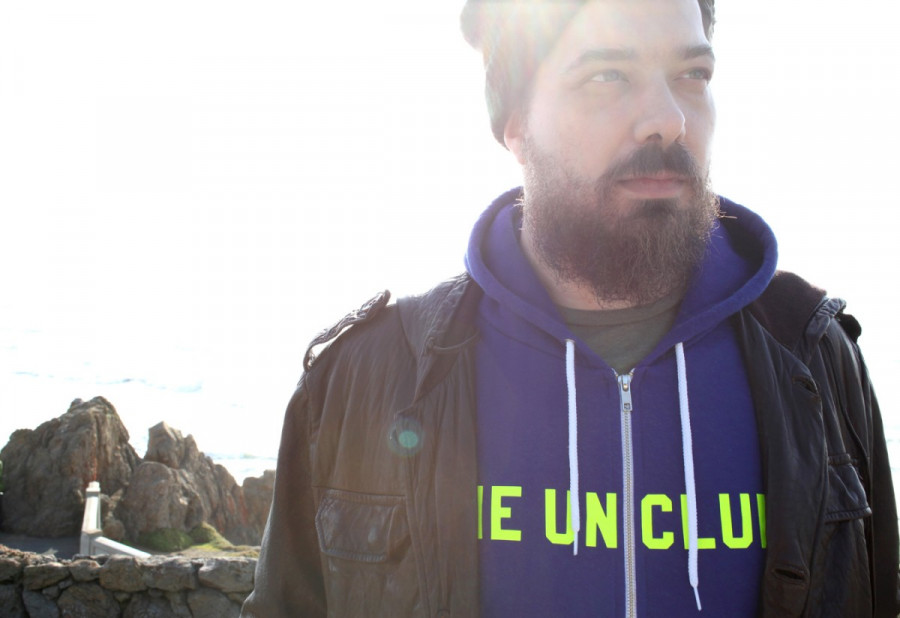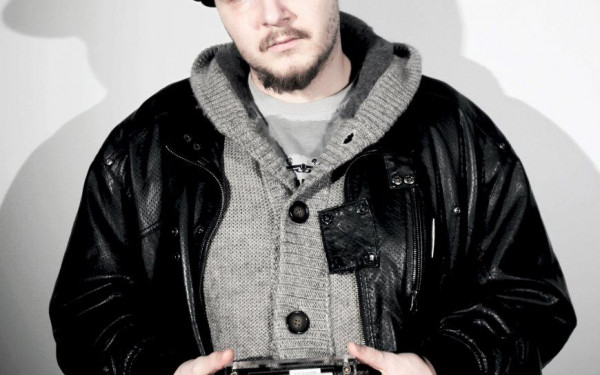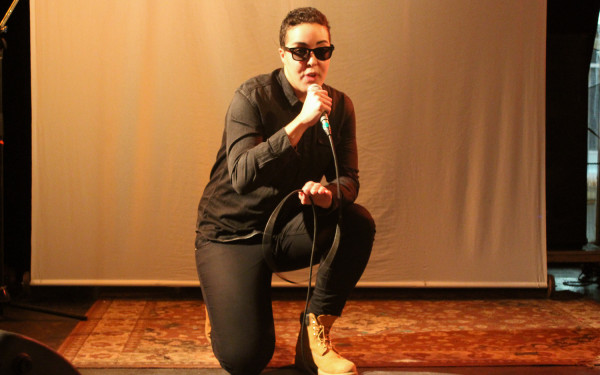Morbid Poetry, Unique Sound
After 20 Years in the Underground, Aesop Rock’s Back for More
Over the past decade and a half, Aesop Rock has nestled himself tightly into a genre-bending niche between verbose, thought-provoking hip-hop and quasar-spiraling beats.
Now, returning to the game after almost five years on hiatus, the urban poet—born Ian Matthias Bavitz—is back with the intensity and focus he lacked while splintering off into side projects.
Bavitz’s new album Skelethon, a tense tug-and-pull of existential aggravation and social ennui, is self-produced, as the California rapper takes a break from collaborating with long-time beat-building buddy Blockhead.
“We had sort of started the project together,” said Bavitz. “But I think the way I work these days is just really scattered, and I kept taking breaks from my solo work to record other projects. There was never a time where I just sat down and knocked out my album in its entirety.
“At one point it just became apparent that I was going to try to handle the whole thing on my own. I like to make a song and remix it twenty times until it’s right for me.”
Marrying breakneck verbosity with tight flow and intricately stacked, skittering rhythms, Bavitz has created a bizarrely unique and challenging sound. His spitfire vocals click, clack, chatter and clatter.
“Candles of a Roman ilk unloaded from a Chevy truck,” he raps on “Ruby ‘81,” a tense tale of a backyard party gone wrong. “Undetected and invisible,” baby Ruby goes “skipping toward the kidney swimming pool / Off into the yawning blue.”
Bavitz’s gruff, sharp voice is a rattling echo of stark and shadowy past selves, and death hangs over the record, tapping a foot as he sits tight for passersby.
“I wanted to show death to be almost a common theme in my life,” said Bavitz. “To the point that I don’t even notice it anymore.”
Accompanying the record were a series of morbid promotional videos involving the Grim Reaper and his dead cat Whiskers, which he felt established an important thematic relationship with the essence of the album.
“Your basic house cat seemed a fitting metaphor,” he said. “Walking him—dragging him, I guess—while acting as if he was A-OK, that really set the tone for the music in what I found to be a funny, if not very dark, way.”
Songs like the opus “Zero Dark Thirty” harness that morbid essence in an analytical and oddly spiritual way, with Bavitz noting “All I ever wanted was to pick apart the day, put the pieces back together my way,” surveying his personal meticulousness as death and rebirth collide with a spidery shuffle beat and pulses.
Although he cites it as an evolution, Bavitz thinks that the more downbeat, strung-out and cerebral vibe of Skelethon is largely chance, not a conscious decision.
“I can see that the sound evolves over a long period of time, but there’s never any conscious refining or shaping of things,” he said. “Once we got the gears in motion everything seemed to fall into place.”
While he’s going to be touring in support of Skelethon for the foreseeable future, Bavitz still has a few far-flung projects and potential partnerships in his pocket.
“I have a full-length recorded with [the Mouldy Peaches’] Kimya Dawson ,” he said. “That will probably be the next thing I release. Me and Rob Sonic have also spoken a lot about starting this next Hail Mary Mallon record soon, which I’m excited about. But, yeah, I’ll just keep writing and making beats.”
Still a hugely influential and prodigiously active bastion of the underground hip-hop scene after all these years, Bavitz credits the longevity of Aesop Rock and his prominence to his dedication and absolute love of the craft, feeling humbled and still bewildered by the support of the fans and the reverence he feels from the hip-hop community.
“Really, I just love to make songs, and I’m thrilled that people have followed along for as long as they have. I am very interested in what I do, and I hope that shows in the product. All I can really do is give it my all and show them that I love to do this.”
Aesop Rock (w/ Rob Sonic and DJ Big Wiz) / July 31 / 7:30 p.m. / Corona Theatre (2490 Notre-Dame St. W.) / Advance $24.40, Door $26.90






